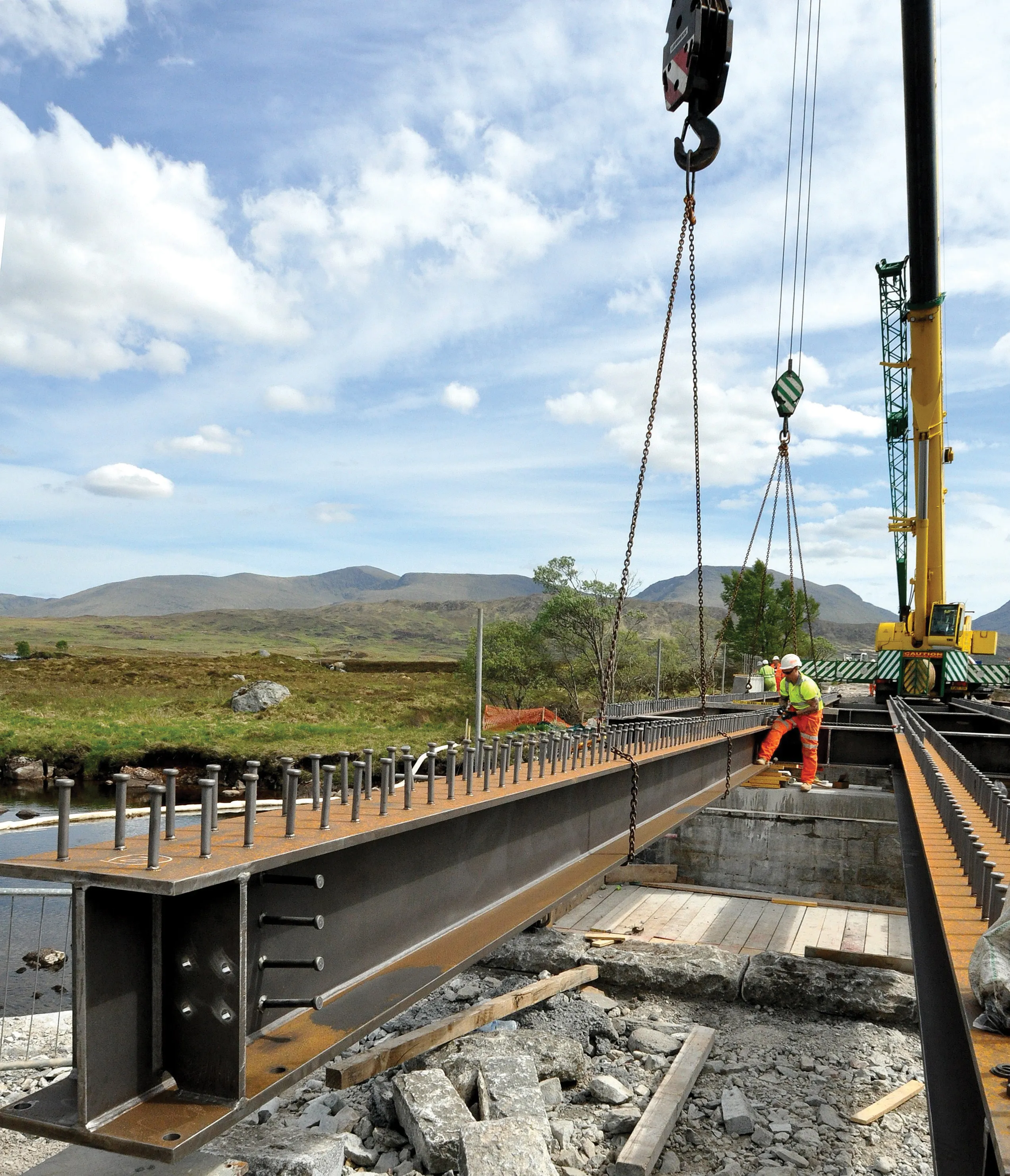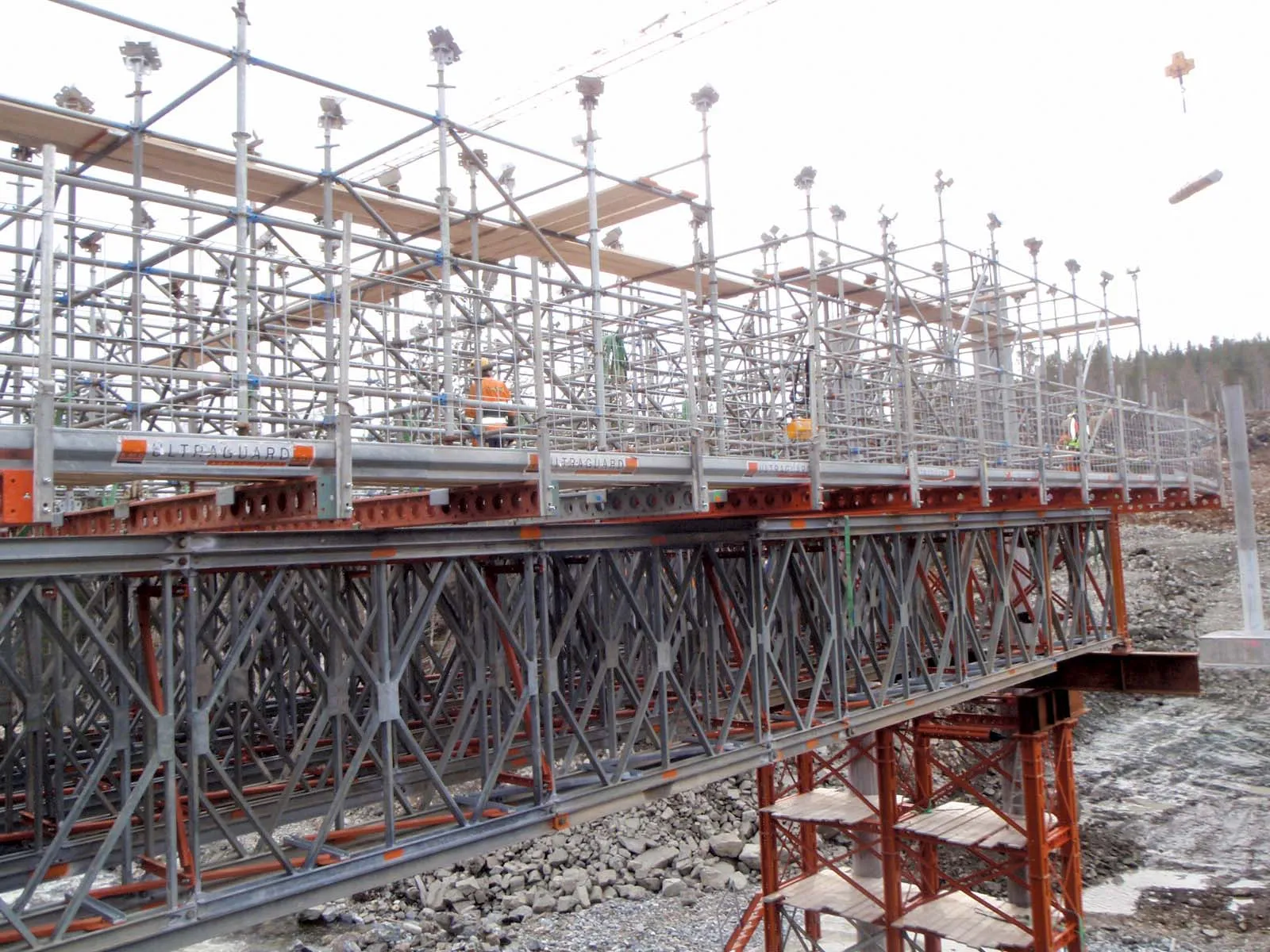Allerton Steel, on behalf of R J McLeod, has fabricated the steelwork for a replacement bridge at Loch Ba on Rannoch Moor in the Highlands as part of its A82 upgrade scheme for Transport Scotland. R J McLeod is the civil contractor on the £2.2 million (E2.6 million) scheme which replaces the existing three-span reinforced concrete bridge.
February 6, 2012
Read time: 2 mins

R J McLeod is the civil contractor on the £2.2 million (E2.6 million) scheme which replaces the existing three-span reinforced concrete bridge.
The new composite deck bridge is constructed from weathering grade steel with six plate girders spanning 32m and totalling 55tonnes.
The bridge beams were prefabricated as three pairs landing onto four crosshead beams at the piers, and the bearings at the abutments. The final six-span beams were then placed as individual items.
The structure had site welded splices to allow for transport restrictions en route to the site.
Tom Brodie contracts manager for R J McLeod said: "Allerton has performed well on this job, working with us to deliver the steelwork on time, and I look forward to working with them again".
Paul Robinson, bridges manager for Allerton Steel said: "On my first visit to site there was a foot of snow on the ground and temperatures of -12°C, and due to the remoteness of the site we were concerned. By comparison on the day the bridge was installed the weather was kind to us and our first project with R J McLeod went very well." The scheme will be completed later this year.
Allerton Steel is a specialist fabricator building bridges as well as heavy and complex fabrications. It also works in the commercial building, offshore, oil and gas, nuclear and crane market sectors.
Its main factory is in Northallerton, North Yorkshire and it also has a facility near Durham city, both in north-east England.







